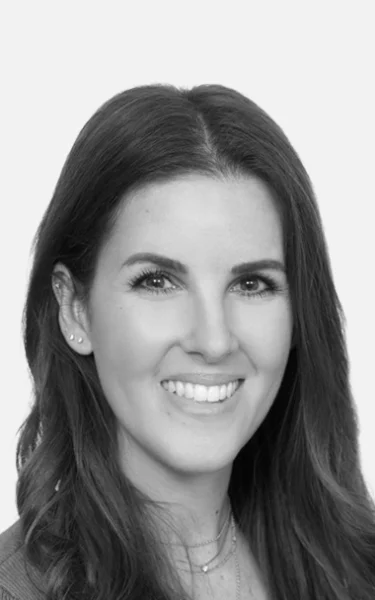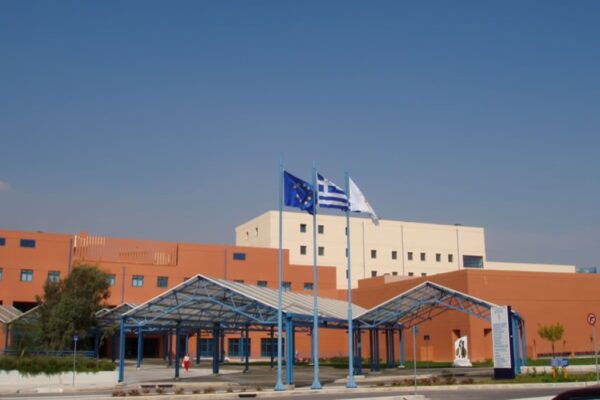Attikon University Hospital | IASIOS Accredited Centre
 Dr. Ornella Moschovaki-Zeiger is an emerging interventional oncologist whose clinical practice and academic contributions reflect a deep commitment to innovation, patient-centered care, and advancing the field of image-guided therapies. She is currently completing a fellowship at the 2nd Department of Radiology, University General Hospital “ATTIKON,” National and Kapodistrian University of Athens, with a focus on percutaneous oncologic procedures, including thermal ablation, image-guided biopsy, and the use of navigation and robotic systems.
Dr. Ornella Moschovaki-Zeiger is an emerging interventional oncologist whose clinical practice and academic contributions reflect a deep commitment to innovation, patient-centered care, and advancing the field of image-guided therapies. She is currently completing a fellowship at the 2nd Department of Radiology, University General Hospital “ATTIKON,” National and Kapodistrian University of Athens, with a focus on percutaneous oncologic procedures, including thermal ablation, image-guided biopsy, and the use of navigation and robotic systems.
In 2024, she completed a three-month fellowship at the Medizinisch Radiologisches Institut in Zurich, supported by the Cardiovascular and Interventional Radiological Society of Europe (CIRSE) European Trainee Exchange Fellowship Grant. The program facilitated additional clinical training and exchange in a specialized outpatient interventional radiology setting.
Dr. Moschovaki-Zeiger has contributed to a substantial body of academic work, including studies on renal and pulmonary ablation, robotic-assisted interventions, and navigation-enhanced image-guided procedures. Her publications and abstracts have been regularly featured at major international radiology congresses, reflecting an active engagement with the academic and professional discourse in interventional oncology.
Her current focus lies in the refinement of minimally invasive techniques and their integration into clinical workflows, with continued attention to safety, efficacy, and long-term oncologic outcomes.
Get to know Dr. Moschovaki-Zeiger a little bit better!
What are your hobbies and interests outside of your professional work in medicine?
I enjoy travelling, doing Pilates and unwinding over dinner with a glass of good red wine. I appreciate having a balance between calm moments and adrenaline-filled experiences, such as skiing, bungee jumping and skydiving, which push me out of my comfort zone and keep life exciting.
Can you share a pivotal experience from your education or career that has significantly shaped your journey in interventional oncology?
One pivotal experience that truly shaped my journey in IO happened during my residency, long before I even knew I wanted to specialize in this field. I was assisting Prof. Filippiadis during a cryoablation procedure for pain management in a breast cancer patient with a rib metastasis.
What stood out wasn’t just the technical aspect of the procedure but the patient’s reaction afterwards. Her face teared up and filled with gratitude as she thanked us for relieving her from what she described as a “living hell”, which left a significant impact on me. Even though I wasn’t the one performing the procedure, I felt an immense sense of accomplishment, knowing I had contributed, even in a small way, to improving her quality of life.
That moment made me realize how powerful IO can be, not just in treating malignancies but transforming lives in the process.
What motivated you to choose a career in interventional oncology over other medical specialties?
What truly motivated me to pursue a career in IO was the unique combination of minimally invasive techniques, innovation and meaningful impact on cancer patients. Unlike many other specialities, IO provides the opportunity to directly improve outcomes for patients who often have limited treatment options while ensuring good recovery after the procedure.
Beyond the technical aspect, what truly resonates with me is the ability to restore hope and quality of life for patients during their most challenging moments. This human element, combined with the ever-evolving advancements in the field, continues to inspire me every day.
What inspired you to pursue IASIOS accreditation for your practice or institution?
I firmly believe that establishing a minimum standard for patient treatment is essential across all healthcare settings. Pursuing the IASIOS accreditation ensures that a centre doesn’t just meet basic requirements but operates as a recognized institution, delivering care that aligns with the highest international standards in IO. This not only provides patients with confidence in the quality of their treatment but also reassures colleagues from other specialities that they are referring to a centre of excellence committed to best practices.
How does IASIOS accreditation benefit both patients and interventional oncologists?
IASIOS accreditation benefits both patients and interventional oncologists by ensuring that care is delivered according to the highest international standards.
For patients, it provides reassurance that they are being treated in a recognized centre where safety, quality and best practices are prioritized.
For interventional oncologists, IASIOS serves as a benchmark for excellence, with the aim of continuous professional development and ensuring that practices align with the latest advancements and guidelines in the field. It also strengthens collaboration with multidisciplinary teams, facilitating referrals from other specialities and enhancing trust within the healthcare community.
What key improvements has IASIOS accreditation brought to your interventional oncology services?
IASIOS accreditation has significantly improved our IO services by streamlining workflows and enhancing our overall departmental organization. It has encouraged us to thoroughly evaluate and refine our protocols, ensuring that every step aligns with international best practices. We identified and adjusted several technical aspects and documentation processes, resulting in more efficient and standardized patient care pathways. It has also fostered a stronger sense of teamwork, as the process involved continuous collaboration across all department levels, ultimately providing us with a framework for ongoing quality improvement.
How do you envision the future of interventional oncology, and what role do you see it playing in the broader field of cancer care?
I envision the future of oncology overall as a field driven by minimally invasive, image-guided cancer treatments that are highly personalized to each patient.
Advances in imaging, navigation and robotics will further refine our ability to deliver precise, tumor-targeted therapies while preserving as much healthy tissue as possible. These treatments will not only improve outcomes but also enhance patient’s quality of life by reducing recovery time and treatment-related side effects.
What advice would you give to the next generation of interventional oncologists?
My advice would be to treat every patient as you would a loved one, always considering their overall well-being, not just the disease. Remember that IO is not just about the procedures, it’s about patient-centered care. Embrace this approach, as IO represents the future of advanced cancer treatment.
Attikon University Hospital | Athens, Greece

